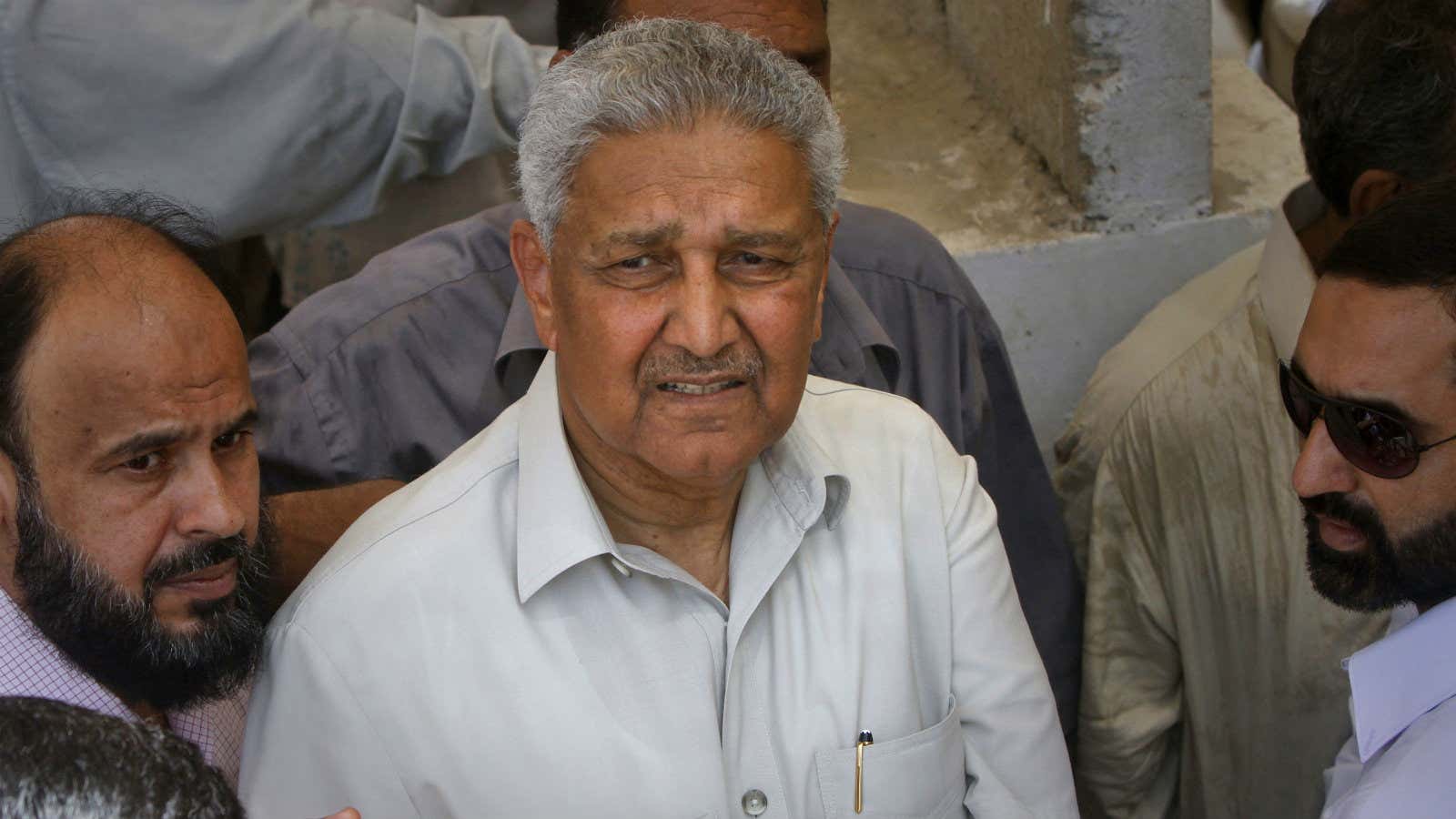United Nations, New York
That Pakistan helped North Korea develop nuclear weapons is a theory that’s been doing the rounds for years.
In 2004, Pakistan’s most famous nuclear scientist, Abdul Qadeer Khan, admitted to have transferred nuclear technology to North Korea and other nations, a confession that led to his detainment for five years. These unnerving revelations were reinforced yet again earlier this month by another Pakistani nuclear scientist, Pervez Hoodbhoy.
Now, as Pyongyang’s belligerent missile tests continue, India, the US, and Japan seem to want to dig deeper into it.
The signal came from a meeting between the foreign ministers of the three countries at New York’s Palace Hotel early on Sept. 18, where North Korea—or the Democratic People’s Republic of Korea (DPRK)—was among the issues discussed. “On DPRK, EAM (Indian external affairs minister Sushma Swaraj) deplored DPRK’s recent actions and stated that its proliferation linkages must be explored and those involved be held accountable,” the Indian foreign ministry said in a statement.
The statement, of course, doesn’t name Pakistan. When pressed on the matter at a briefing later in the day, the Indian foreign ministry spokesperson only said: “I think I am giving you enough material (the statement) to figure out what we’re talking about.”
The reference to Pakistan was clear, in part, as there have been several revelations over the decades about the cooperation between the two nations. As Samuel Ramani, a PhD candidate at the University of Oxford, wrote last year in The Diplomat magazine:
Since the 1970s, Pakistan and North Korea have cooperated extensively on the development of ballistic missile and nuclear weapons technologies. Pakistan’s strong alliance with China and the legacy of a major scandal linking the Pakistani military to North Korea’s nuclear program have prevented Islamabad from joining UN efforts to diplomatically isolate the DPRK.
While economic links between Pakistan and North Korea were established during the early 1970s, the foundations of the modern Islamabad-Pyongyang security partnership were forged during Pakistani prime minister Zulfikar Ali Bhutto’s 1976 visit to North Korea.
In particular, Khan’s role in dealings with Pyongyang has been under scrutiny. In 2005, TIME magazine said that, according to intelligence officials, “Khan sold North Korea much of the material needed to build a bomb, including high-speed centrifuges used to enrich uranium and the equipment required to manufacture more of them.”
Whether Khan was acting alone is unclear, though, in his recent interview, Hoodbhoy was explicit. “It is very hard to believe that AQ Khan single-handedly transferred all technology from Pakistan to North Korea, Libya, and Iran, as it was a high-security installation in Pakistan and guarded with very fearsome amount of policing and military intelligence surrounding it,” he told Deutsche Welle.
This is something journalists Adrian Levy and Catherine Scott-Clark, too, brought forth in their book Deception: Pakistan, the United States, and the Secret Trade in Nuclear Weapons. ”It also looks beyond Khan’s confession and presents facts that suggest that successive Pakistani governments have been at least equally complicit with Khan in continuing nuclear proliferation,” a CIA compilation says about the book.
Whatever happened, three global powers now seem to want to get to the bottom of it.
